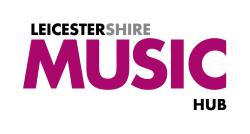What to expect when your child is learning how to sing or play an instrument

What to expect when your child is learning how to sing or play an instrument.
This page is designed to help you understand the opportunities available to your children, and to help parents and teachers understand how they can ensure children make musical progress.
Here are some basic principles:
- Children are happy when they know that they are making progress.
- They enjoy music when they are able to hear the progress they are making.
- They gain enormous self-esteem and confidence from building up a portfolio of small and large scale performances
- They value what they do in music when they have support from parents and family
- The guidance of an expert instrumental/ vocal teacher develops their understanding of 'how' to improve
A Practice Diary can be the main method of dialogue between teachers, parents and pupils. If there is effective communication between all three parties, the learning will be transparent and your child will make progress. In the early stages parents should help structure and monitor practice at home. Your child's instrumental/ vocal teacher will guide you on the appropriate amount of time for their particular age and instrument. Parents and teachers should be looking for the next musical step for the student. You should ask to be kept informed of opportunities including:
- Practice strategies / expectations
- Notice of events
- Concert opportunities
- Area groups
- Central ensembles auditions
- Books / equipment to buy
- Attendance
Some common questions…
- Does every child need an individual lesson to make progress?
Your child's instrumental/ vocal teacher is best placed to assess which type of lesson will sustain attendance, enjoyment and achievement. Some children learn better in groups where they can challenge each other.
- Should my child be working towards examinations?
There are many musical "end points" including concerts, making a recording, learning a particular piece, joining an ensemble which can motivate individuals as well as exams. Exams have their place in celebrating achievement although they may not be appropriate to every child. There are also more informal types of assessment that can be undertaken as part of the lesson and are accredited, such as Music Medals.
- How do I know how much practice my child should be doing?
- Always take advice from your child's teacher regarding practice – learning how to sing or play an instrument is complex and requires the skill of a specialist teacher. Very young children may practise less than older children if that suits their needs and concentration skills better. There are good and bad practice habits and progress can be limited if pupils practice in the wrong way. Again your child's teacher will show him or her how to practice.
- What do I do if my child wants to give up?
So did most music teachers when they were young players! Normally this requires a change in direction, a new piece, changing the skill level or reassessing the learning in some way. It is natural for children and young people to sway but parents and teachers have a responsibility to make sure we can reinvigorate learning when this happens.
To see a short video about how playing an instrument benefits your brain, please click here
Thank you for supporting your child's learning
How playing an instrument benefits your brain.
Benefits of Playing Music Musicnotes Infographic (PDF, 5.8 Mb)






